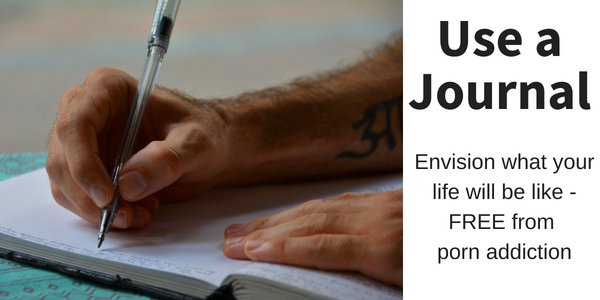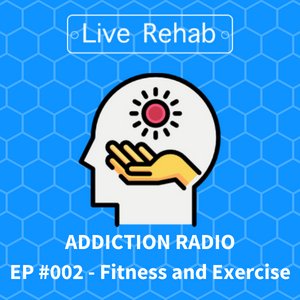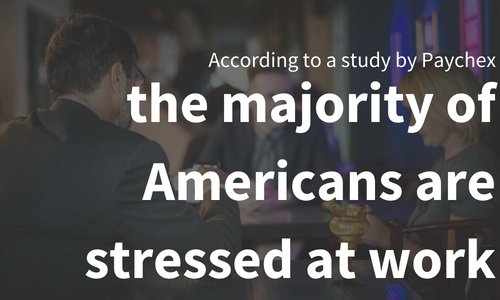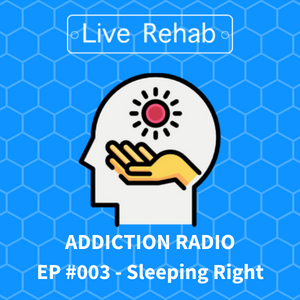
So we all know that getting enough sleep is generally important to your overall health but it’s even more important when you are fighting an addiction. It’s common to feel like you’re not getting enough sleep or your sleeping too much. In this episode of Addiction Radio podcast, we’re going to talk about why sleep is important during recovery, how much sleep you’re getting now, and how much sleep you should be getting.
In addition, we’ll help you recognize signs of not getting enough sleep, dig deeper into different types of sleep, and the health benefits and risks of getting too much or too little sleep. We’ll conclude the podcast by talking about ways you can get better sleep, when and if you should take sleep aids and if you should call your doctor.
Let’s get started.
Podcast: Play in new window | Download
Subscribe: Apple Podcasts | RSS
Show Notes
In this podcast, we are going to talk about how important sleep is when tacking an addiction. We’ll have you take an inventory of your current sleep, talk about how much sleep you should be getting, and signs of not getting enough sleep. In addition, we’ll talk about the health benefits and risks, how to get a better night’s sleep, and if or when you should call your doctor. Let’s get started.
Why sleep is important during recovery
Sleep is a key component when breaking any addiction. Just like fitness and nutrition, it’s important to take care of your health by focusing on sleep. In other words, you need to let your body rest.
Your addiction has likely been taking a toll on your body and most people with an addiction have messed up sleep. When you don’t sleep well, your entire body is affected. Your brain needs sleep in order to repair itself and help you turn back to baseline.
Sleeping too little can cause your body to become irritated and when agitated you are at greater risk for triggers which could potentially lead to relapse. When you sleep too much, your body doesn’t get the activity it needs to be in a healthy state and this can lead to lack of motivation, depression, or sadness which can also lead to triggers and relapse. The key is to get just the right amount, every single night.
Most people don’t get enough sleep and those who are fighting an addiction have it that much harder. That’s why I want to talk to you about how exactly to get a good night’s sleep every night. When you couple this with nutrition and fitness, you set yourself up for great success. Let’s start by figuring out how much sleep you are currently getting.
How much sleep are you getting now?
The first thing you’ll need to do before changing anything is taken inventory. How much sleep are you getting now, are you getting good quality sleep? Does it take you forever to fall asleep? Do you wake up often?
The answers to these questions should be documented over a couple of days. Now the easiest way to get answers is to use a fitness tracker that logs your sleep. Most fitness trackers are pretty affordable now and very beneficial because you can use it for your nutrition and fitness as well. If you don’t have a fitness tracker then you’ll have to start using a pen and paper – just keep a log next to your bed.
If using a pen and paper it’s impossible to know the exact minute you fell asleep but that’s okay; when you wake up just try to remember around what time you fell asleep, what time you woke up and if you remember waking up in the middle of the night.
You’ll need a few days in order to calculate some sort of average. Everybody has off nights here and there; that’s normal but what we really want to know is how much sleep you are getting on average and what your quality of sleep is like.
It’s important to make a note of how you feel each morning and throughout the day while making a log. Are you feeling refreshed when you wake up, groggy, what about during the day? Do you get tired often? Go ahead and start and log and continue to log your sleep over the next few days. After that: we’ll talk about how much sleep you should be getting.
How much sleep should you be getting?
Ideally, you should be getting 7-9 hours of sleep each night and only wake up once or twice for a few moments, if at all. It shouldn’t take you more than 7-10 minutes to fall asleep and you should find waking up; while yes nobody likes to wake up but it shouldn’t feel impossible.
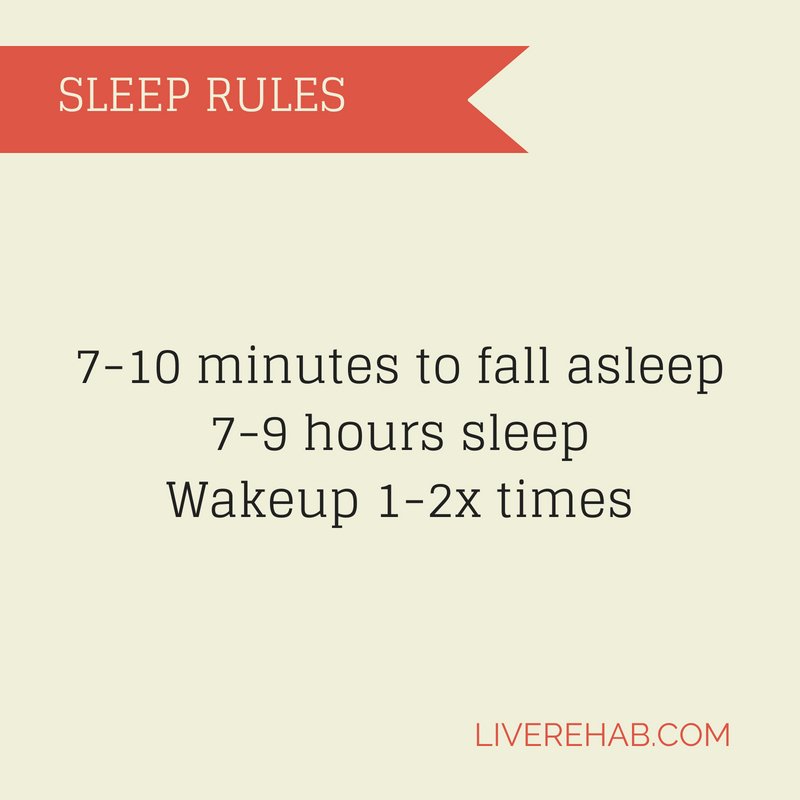
Once you figure out where you stand, you can then start to make improvements.
Getting the right amount of sleep isn’t easy and won’t just come naturally. It’s going to take some time and effort to establish better habits and we’ll talk about that a little later.
Depending on how far away you are from getting an average night’s sleep; the time it will take to get there will vary. For example, if you’re getting about 6 hours of sleep, then it shouldn’t take long to make your sleep even better. But if you’re sleeping only 2-3 hours of maybe 12-13 hours per night, it may take a bit longer.
Once you’ve established your baseline and you know where your goal is, making those small improvements each week will it a little easier to do. You wouldn’t just go from getting 2-3 hours per sleep to magically the next night trying to aim for 7 hours.
Now we’ve heard all the arguments in the world and the most common one is that students sometimes feel like they’re getting enough sleep and sleeping more is not how their body works. Look at some of the stuff you read online – successful people work 24/7 with very little sleep overall.
I was once listening to a podcast with Oprah and Arianna Huffington ( the founder of Huffington post) and Arianna was saying that when HPOST was getting off the ground she would work around the clock and sleep maybe only a few hours each night. She stated this was her biggest regret. Once she started sleeping she started to make fewer mistakes and the overall quality kept rising. So don’t let the media fool you into thinking sleeping just a little is normal. It’s not good for you, for your brain or for your body in any way.
Let’s move on to the next lecture where I’m going to talk about signs that you’re not getting enough sleep.
Signs you’re not getting enough sleep.
There are many signs to look for to know if you’re getting too much, too little or just the right amount of sleep.
Let’s talk about signs of too little sleep because that’s what the vast majority of people experience in general.
First, do you find yourself falling asleep in strange places during the day? The car, the bus, the theatre, at work on your lunch break? If so, you’re not getting enough sleep.
Do you feel groggy, irritated, do you have heavy eyes? What about falling asleep easily while watching TV? When your body isn’t well rested, it’s constantly trying to catch up in any way possible.
What about too much sleep? This is a very real concern especially for those who struggle with addiction. Sleeping too much, especially in the middle of the day can lead to insomnia at night. But if you sleep too much your body isn’t moving or staying as active as it should be. You’re not burning off the calories and it becomes this never-ending cycle. You sleep all day, you’re up all night because you slept all day and it goes on and on.
Once you start taking your sleep seriously you’ll notice that when you get the right amount of sleep, you don’t become tired during the day. You will feel refreshed every morning and your overall sleeping patterns will be much smoother than when you weren’t sleeping enough.
Not all sleep is created equal.
The one thing to know when logging your sleep is that the number alone doesn’t mean you’re getting a good night’s’ sleep. Have you ever slept for 10 hours but felt tired and groggy because you were tossing and turning all night?
There are 5 stages of sleep – it’s essentially in this order: light, light, deep, deep, light. Stage 3 and 4 is where all the work and benefits take place. During the deep sleep stage, your body is repairing and recovering from all the day’s stress. This is also when the human growth hormone is released which is essential to keeping your body healthy and active. If you wake easily throughout the night then you are not getting enough deep sleep.
Every time you wake up, your body has to go throw each stage over again. So someone who is getting 10 hours of sleep but is hardly getting to deep sleep stage is not the same as someone who is getting 5 hours of deep sleep and 4 of those hours is sleeping deeply. This is why it’s important to not just get the right amount of the sleep but to make sure you are getting high-quality uninterrupted sleep.
Next we’re going to talk about the health benefits of sleeping too much and too little and then we’ll dive right into strategies and ways you can get better sleep.
Health benefits and health risks – too much and too little.
Sleeping too much and too little can cause an array of health problems. Ironically, sleeping too much and sleeping too little can both put you at higher risk for diabetes, heart disease, and stroke.
Additionally, when you sleep too much you are also at a higher risk for depression, sadness, and you might be feeling even more tired because your body isn’t getting enough physical activity when you sleep too much. It’s a vicious cycle.
When you sleep too little, you are at higher risk for anxiety, agitation, irritation and overall feeling pretty grumpy.
Both sleeping too much and too little puts you at risk for relapse. Why?
Well, what do you do when you feel bad? You don’t make good decisions.
The goal here is to help you realize how important your sleep is for your recovery so you can feel at your best.
When you get the right amount of sleep you literally add years to your life. Longevity has been linked to good sleeping habits. If you combine good nutrition, fitness and sleep, your recovery and ability to beat your addiction for good is at a much higher chance than if you neglect your physical health in any way.
Let’s talk about how to get a better night’s sleep.
How to get a better night’s sleep
Okay so let’s now talk about the plan. How can you get a better night’s sleep? Lots of ways actually.
First, until you’ve reached your sleep goal, you’ll want to keep a sleep journal. There are lots of things to journal about.
We always like to start by talking about what you can do right now today to start making progress. Now, remember, this process is going to take some time so just be patient.
First, now that you know what time you are going to bed, tonight I want you to aim to go to bed 15 minutes earlier. The important thing though is to keep your wake up time the same, even on the weekends.
For example, if you normally go to bed at 1 am and wake up at 6 am tonight – you will go to bed at 12:45 am and wake up at 6 am.
Continue to do this every single week until you have established a time where you can reach your goal. For example, let’s say you have a goal of 8 hours (this is pretty normal and average) If you currently go to bed at 1 am and wake up at 6 am you’re only getting 5 hours of sleep every night. You need to start getting your body used to sleeping more so if you up your bedtime by 15 minutes per week it will take you about 12 weeks to hit the 8-hour mark. If you’re waking up at 6 am every day you should have a bedtime around 10 pm.
This is where you are going to start.
Now let’s talk about what to do in the meantime.
This week won’t seem so bad right? Just 15 minutes. While you start to work on getting more sleep, let’s talk about how to get better sleep.
The first thing to do: Set a sleep ritual. To do this, you’ll want to take time every night to establish a routine right before bed. To start this can be as little as 15 minutes but like your bedtime, you’ll want to increase this as the weeks go by. Ideally, bedtime rituals should be about an hour before bed. Here are some examples:
- Create a reading nook and read on a non-lit kindle or a book. Stay away from the screens.
- Do some yoga
- Listen to some calming music
- Meditate
- Drink some non-caffeinated tea
Think of this as self-care – this is your team to create some calm and peace in your life. After everything you’ve been through it’s important that you take some time for yourself. Not only will this help with your mental health but this will also help with your physical health too. You’ll start to have more energy and combined with fitness and nutrition – your body isn’t going to know what to do.
Are sleep AIDS okay? answer: no
A lot of people rely on sleep aids or sleeping pills to fall asleep. I do not recommend this. You are fighting an addiction so it’s important to not trade one addiction for another or if you’re addicted to sleeping pills it’s important to fight both addictions at once. If you do rely on sleep aids, start tapering yourself off now. At first, you’re going to have a really hard time sleeping but if you stick to a routine, establish good sleeping habits and a good ritual it won’t be long before your body will start to understand.
If you are thinking about taking sleep aids because you are having a hard time falling and staying asleep; don’t. Follow this plan, stick with a good diet, and exercise regime and your sleep will work itself out with the use of anything. I say this though but I do know there are healthy non-addictive natural sleep aids you can try if you really feel like you need to: melatonin for example.
But use with caution and always contact your doctor before doing so.
When to talk to your doctor
Sometimes no matter how much you try, getting the right amount of sleep seems impossible.
There are medical conditions that cause people to sleep too much or cause insomnia, as well as some medications. We recommend giving it 12 solid weeks of sticking to this sleep plan along with getting good exercise and eating healthy. If after 12 weeks you’re still struggling with your sleep then it’s important to call your doctor. There may be some sort of underlying medical condition that you’re unaware of.
Conclusion
That concludes this episode of Addiction Radio Podcast. We talked about a lot during this podcast. We hope you learned how your sleep will help you during recovery and just how important getting the right amount of sleep is.
Go ahead and start now by making sure you are keeping a sleep journal and upping your bedtime this week by 15 minutes.
We’d love to hear more about your sleeping ritual so if you’re up for it – post what you do in the comments section so other students can get ideas too. Good luck with your sleeping and if you do have any questions you know how to reach us.
A message from Live Rehab:
Are you looking for online rehab or alternatives to AA or NA?
Here at Live Rehab, our online drug and alcohol courses help people obtain sobriety without having to leave their homes.
Does rehab really work?
For some people, traditional rehab does work but it’s clear that the option is not for everyone. This is why we have created rehab alternatives. Taking courses online means you have the flexibility to work on your sobriety on your own time.
Visit liverehab.com/pricing for more information.


